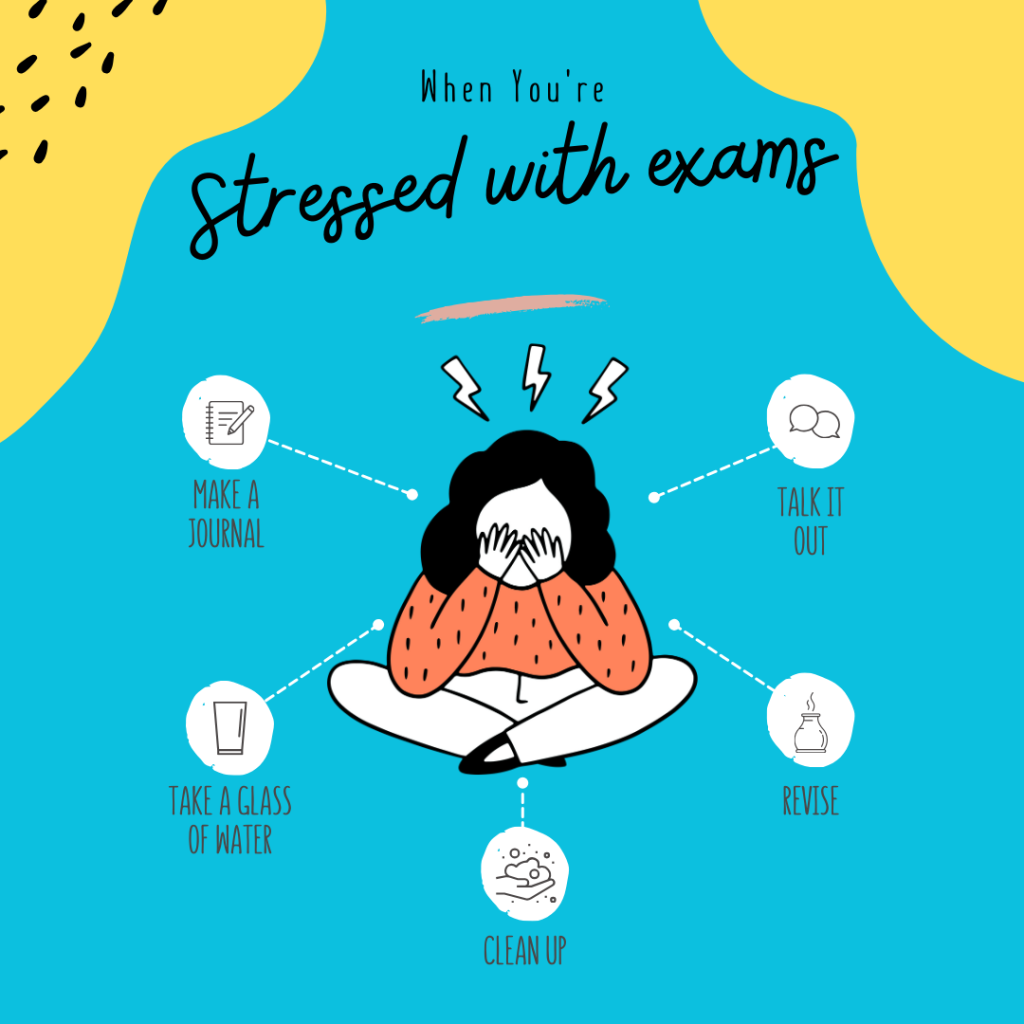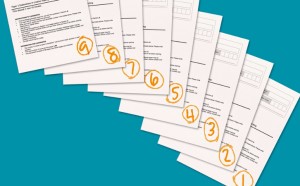During exams, it is pervasive for students to take a toll on their mental health because several factors are influencing them and their preparation, which can have a significant effect on their exams. A study suggests that in the GCSEs, almost 15% of students suffer from very high test anxiety. Thus, students need to have a healthy mindset during their exams to prepare and maintain their health because their health needs are not a student’s primary focus, even when not during exams.
What is Exam Stress?
During exams, you can feel discomfort or nervousness where your heartbeat is racing; it can also include discomfort or pain in some cases. However, it is essential to realize that there should be a distinction between stress and medical anxiety because the latter is a serious issue and needs attention immediately.
1. Causes of exam stress:
Exam stress can be due to various reasons, such as the fear of performance that is to be given in the coming exams. It can also be due to the expectations that people have with us like our parents expect specific results from us, and it can also be due to the lack of preparation; however, to be careful, we need to distinguish that we can have exam stress even when we are proficient in our syllabus.
2. What is it like to experience exam stress:
Going through exam stress can be very unsettling because we can feel a lot of discomfort, disrupting our concentration while trying to focus on our exams or preparation. Moreover, due to exam stress, students can also start to feel lonely and spend their time in mind-stressing activities, which can stop them from doing their normal activities in life.
3. Symptoms of exam stress:
The most common symptoms of exam stress are
1. Not being able to focus or concentrate
2. Feeling irritated or having mood swings
3. It can also have physical effects like headaches and nausea
4. Also trouble sleeping or rapid heartbeat
How to Come out of Exam Stress?
It is expected that we feel overwhelmed during exams, but ensuring that our mental health is not compromised is also essential. Hence, we must always learn coping strategies and know the difference between coping with exam stress and how to deal with exam stress.
1. Coping up:
Coping refers to strategies to mitigate or reduce stress, like relaxation techniques or time management. Here is a list of actions that can help us:
1. Making sure that we complete our sleep of at least 8 hours
2. Staying calm and believing in yourself
3. Going to someone who we trust who can actively listen to us
4. Focus on what we are doing instead of comparing with others
5. Using techniques like Deep breathing to help us calm down
2. Dealing with Exam Stress:
Dealing with exam stress can mean simply managing or facing the stress without necessarily using specific strategies. It is okay to feel stressed; however, everyone is going through the same exams, so we must realize we aren’t alone.
The best approach here would be to try talking to someone who actively listens to us so we can ease our burden. The person should be encouraging enough. It could be a friend, family member, caregiver, community or faith leader, teacher, or trusted person. You don’t have to face this by yourself.
3. Revising the content:
Although revision seems daunting because we have to go through the course at once, we can break our content into smaller chunks and revise it at intervals to avoid having to bear all the burden at once. One great technique here would be to make a revision timetable so we can easily follow up on what we are trying to achieve.
Result Day Anxiety:
When we talk about exams, it is also critical to mention result days because they also make up a significant portion of the anxiety of the students, who must wait several months for the results to be released. This causes a lot of discomfort and is equally essential to deal with.
How to help your child on result day:
GCSEs are an essential part of every student’s life, but as parents, we can have a lot of significance in this process because we can help them as support systems with whom they can openly reach out.
Conclusion:
Preparing our children early on for their exams is essential so they don’t have to feel the heat at once just before exams. This can be done by personalized attention to the student, such as one-on-one tutoring. Find Your Tutor provides personalized one-on-one tutoring so students get individual attention and don’t have to be overwhelmed on exam day.








